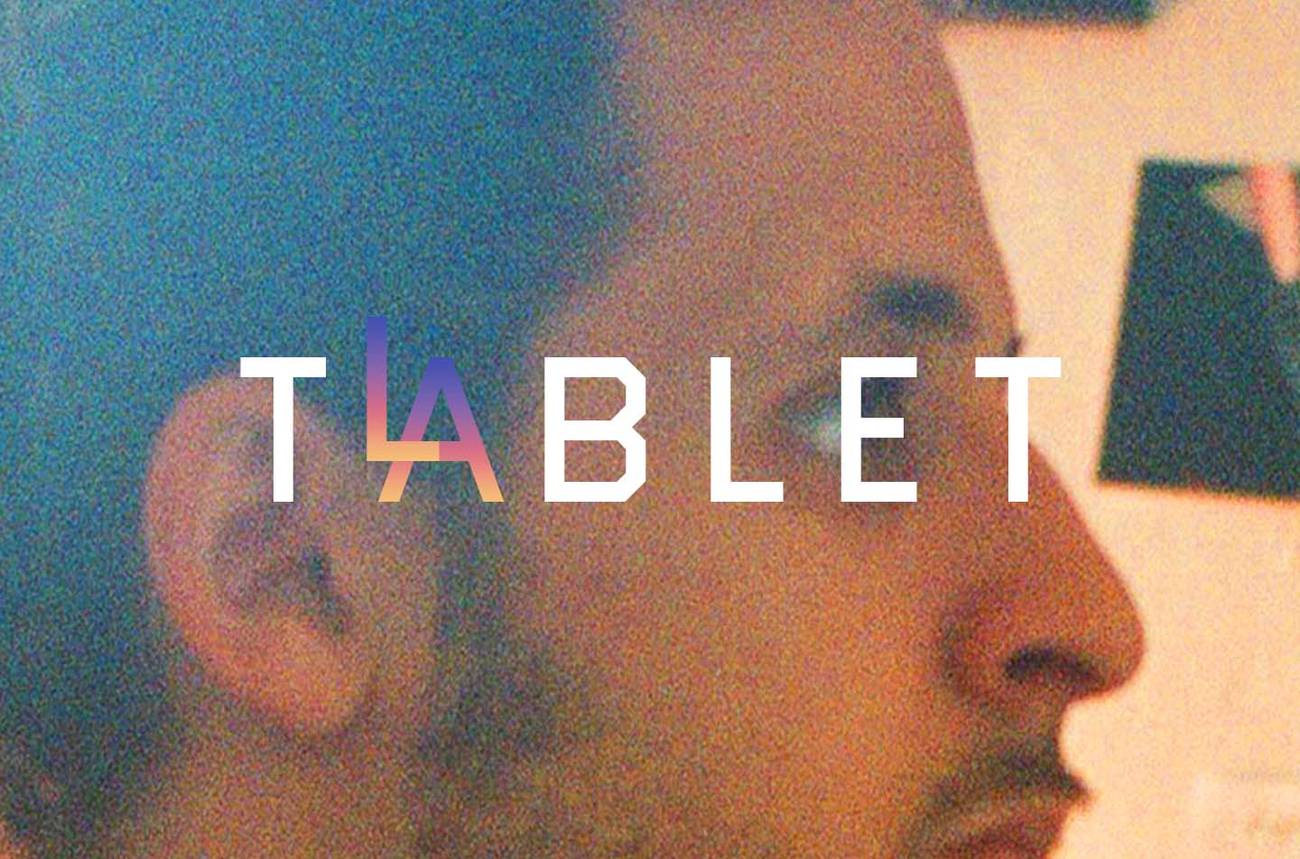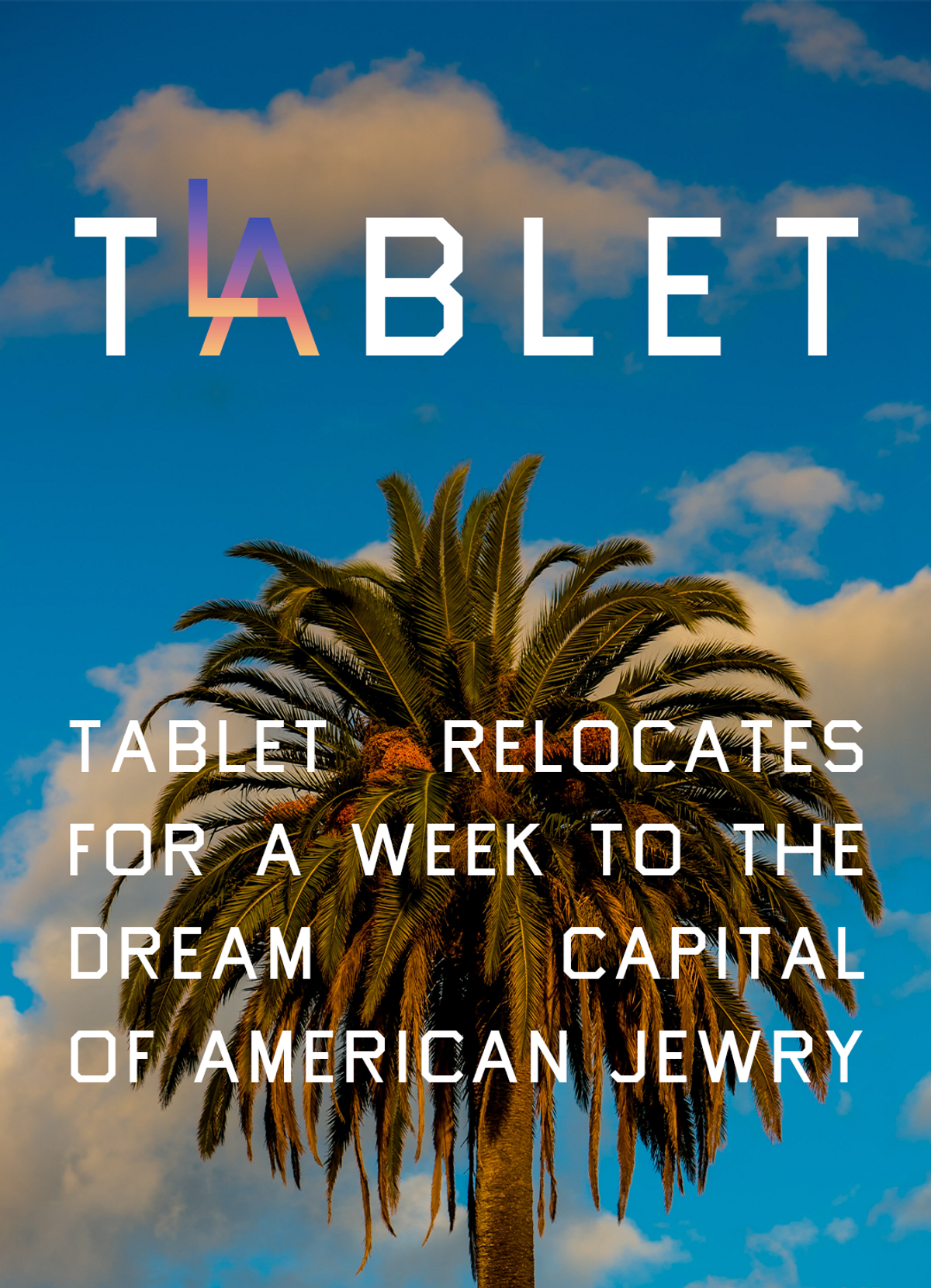The Yung Levinas of LA Rap
Rhys Langston on the city’s genius for self-invention




How do you follow up Stalin Bollywood? As an album title, it can’t be done. Contentwise, LA rapper and multi-instrumentalist Rhys Langston’s 24-minute blast of filthy bass grooves and philosophical provocation felt and sounded like no other 2021 hip-hop release. It wasn’t just because of the song about how popes and presidents are all rapists, or the blistering, maybe half-serious, spoken-word noise-rock revenge track about his disgusting former roommates. For one thing, the album contained perhaps the only reference to the Jewish philosopher Emmanuel Levinas in the history of rap, just after a line about “a Chickasaw shiksa/Fiddl[ing] on the roof of her mouth.” All of which in turn transpired within a song whose hook is a highly complex pun about contact lenses and the effect of the Israeli-Palestinian conflict on the self-understanding of a young, interracial, secular American Jew. Two-state solution to soak eye contact—see? “This is one of the tracks where I play with ambiguity in a way people could read as too clever,” Langston concedes.
Dressed in a white Tee and a modest sliver of gold chain, the 28-year-old Langston sat cross-legged on an office chair, surrounded by a laboratory’s worth of neatly organized musical equipment in his home recording studio, just west of the University of Southern California campus. He’s wire thin, proportioned like someone who first dunked a basketball when he was 13, and who might be out hooping at this very moment if he hadn’t just had shoulder surgery. Like Prince, Langston plays nearly every instrument on his records, and he has almost limitless freedom in dealing with the ever-perilous “what next?” question, alone with his guitars, samplers and synths, drawers of old lyrical notebooks, and a butterscotch cat named Tahini, who will frantically dart around the one-bedroom bungalow when the bass gets especially sick.
In a deeper sense, he explains, “A Two-State Solution to Soak Eye Contact'’ sprang from a number of very real questions, ones that, once posed, couldn’t be accused of being “too clever.” “What are the most incendiary parts of what it means to be Jewish? What does it mean to a person like me?” Langston said. What nerves can you hit? I asked. “What’s behind these nerves,” he replied.
I didn’t come here to riff about old tracks, though. More than one album’s worth of post-Stalin material gestates within a desktop computer, and you know it’s all going to hit hard. Langston played me a couple of trippy acoustic-inflected numbers that were worlds away from Stalin’s confrontation and punk sensibility—Beck by way of Portishead by way of Leimert Park.

On one unreleased track, he raps over an alluringly grimy throwback of a slowed-down funk beat: “My political awakening began as a Black kid in synagogue/Recitation of ancient rites turned digital from analog.” In a 45-second whirlwind we get other snippets of autobiography, intricate lyrics about growing up between the households of two separated parents, one Black and one Jewish, living in different parts of the freeway-dissected city, zones that can often feel like they have nothing to do with one another. The song’s tentative title is “Afro-Eccentric Character Creation Screen,” which I see as a cheeky acknowledgement that self-fashioning, though a deeply American concept, is also something of a game.
LA is America’s capital of self-invention, the laid-back, vibe-based counterbalance to stodgier and status-obsessed New York. But LA is also where vibes are commoditized, packaged, and exported. On the ride south from Sherman Oaks I passed silent and hulking studio sound stages, places engaged in a wondrous and sinister multibillion dollar psychological experiment: How do we capture as much of people’s finite and ever-dwindling time on earth as possible?
Langston, the son of a former soap opera actress and a stand-up-comic-turned-screenwriter, is defiantly uncynical about art, and about his hometown’s relationship with the effluvia of creativity. “Coming from a family of working-class artists … allowed me to look at the arts as something you can do humbly,” he said. “It doesn’t have to be a pie-in-the-sky thing.”
Yes, in LA, the entertainment industry is a behemoth operating at unimaginable scale. “But the flip side is there’s so much skin-of-your teeth culture going on,” Langston explained. Because the industry’s so massive, the fringes of it are massive too, which is how local scenes like Project Blowed and Kaos Network could give rise to decades’ worth of interconnected LA rap experimentation. New York is stodgy and hyperconservative by comparison.
In Langston’s mind, LA is where the true freaks can still nurture one another’s talents and careers. Possibility is always churning. A Rhys Langston-type artistic omnivore can thrive here by releasing a piety-shredding album called Stalin Bollywood and then changing up his entire approach. “I’ve been a smartass a lot,” he said. “I want to express some shit I can’t shrug off.” And then, before we parted ways and I headed back north: “Hope is treacherous but essential. I’m turning into an old head by the day.”
Armin Rosen is a staff writer for Tablet Magazine.